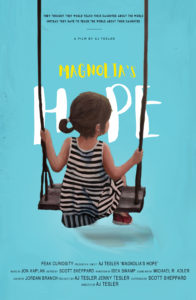
The past couple of weeks have brought some fairly promising news in the Rett Syndrome community. I’ll share it here with links so you can become an amateur geneticist too.
1) Trofenitide – one of the drugs currently in trials for Rett Syndrome is going to announce a pediatric trial soon (they say the end of the month). That trial is likely to be short and just to test tolerability of dosage before launching into a phase 3 trial. The phase 3 trial, if successful, would mean there would be medicine for Rett Syndrome on the market. This seems to be about 3 years away (total guess on my part, but just looking at how long things have taken and making assumptions). 3 years away from some kind of medicine (pending all approvals). Imagine that from the perspective of someone who was diagnosed with Rett Syndrome before they even knew what caused it about 16 years ago and you’ll get a sense for how far and how quick the science around this disorder has come.
(https://www.rettsyndrome.org/blog/15-neuren-announcement-about-trofinetide)
2)PTP1B – This one is confusing, so I’m going to go step by step: Rett Syndrome girls have mutations on the x chromosome which limits the production of MecP2 – a protein that makes the body capable of higher learning skills. A few weeks ago scientists found a new enzyme that increases in mice when MecP2 is not expressed. What that means is if MecP2 doesn’t exist in the body, the body creates more PTP1B. What that means is that if MecP2 doesn’t exist in the body and a drug can limit the PTP1B production, the body would have the right amount of PTP1B and the effects of Rett Syndrome would be limited. If one of the downstream purposes of MecP2 is to regulate production of this enzyme and we can do that with a drug, then that would have a serious therapeutic benefit to people with Rett Syndrome. This possibility was proven in the lab with mice where the mice (that have been genetically engineered to have Rett Syndrome) got 25% better. 25%!!!! That’s a lot!
(http://cen.acs.org/articles/93/i31/New-Target-Rett-Syndrome.html)
3)NLX-01 – This is another drug that looks like it’s headed for clinical trials. It’s a serotonin activator – which may sound familiar for anyone who’s ever been on anti-depressants. This one is extremely selective – as opposed to the shotgun effect of yesteryear’s Prozak and such. As a result, there are high hopes for its benefit with breathing abnormalities, cognitive enhancements and mood. Basically it sounds like the drug from Limitless – and I could see how that could help Maggie.
(http://www.orphan-drugs.org/2015/08/07/nlx-101-treatment-rett-syndrome/)
4. Immune System – This has always been a neurological disorder, but recent science shows the immune system isn’t fighting it – it’s making it worse. Which makes sense, because we’ve certainly noticed that every time she gets sick, the disease is amplified. Luckily, she’s been fairly healthy the last few months, so we haven’t had to witness this of late. One positive – it gives them one more thing to fight; one more thing to target; one more way they can help her.
(http://www.umassmed.edu/news/news-archives/2015/05/umms-research-implicates-immune-system-in-rett-syndrome/)
Those are my understandings of the updates I read. There are some other drugs and science and tech we’re all excited about, but it’s too early to really start talking about any of the other ones. The three drugs are exciting in how close they are to actually being something that Maggie could take to help her.
We’re getting there and it’s because of your support!!!! Thank you!
*disclaimer: I am not a scientist.
**disclaimer: That first disclaimer was probably unnecessary
***disclaimer: Everything I’ve written is based on my limited understanding of very dense research papers I now read in my spare time. I included the links so you can read them too and correct me in the comments below.

disclaimer:I am not the father of a scientist but I am the proud father of an ex stand up comic who has learned a ton about the science of Rett and uses his terrific communication
skills to explain it to us mere mortals
Thanks, Dad. Hope it was helpful.